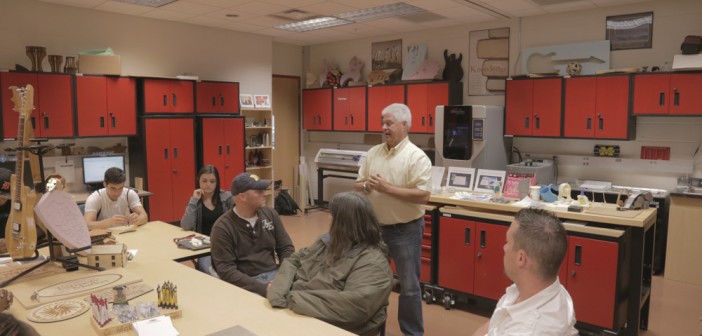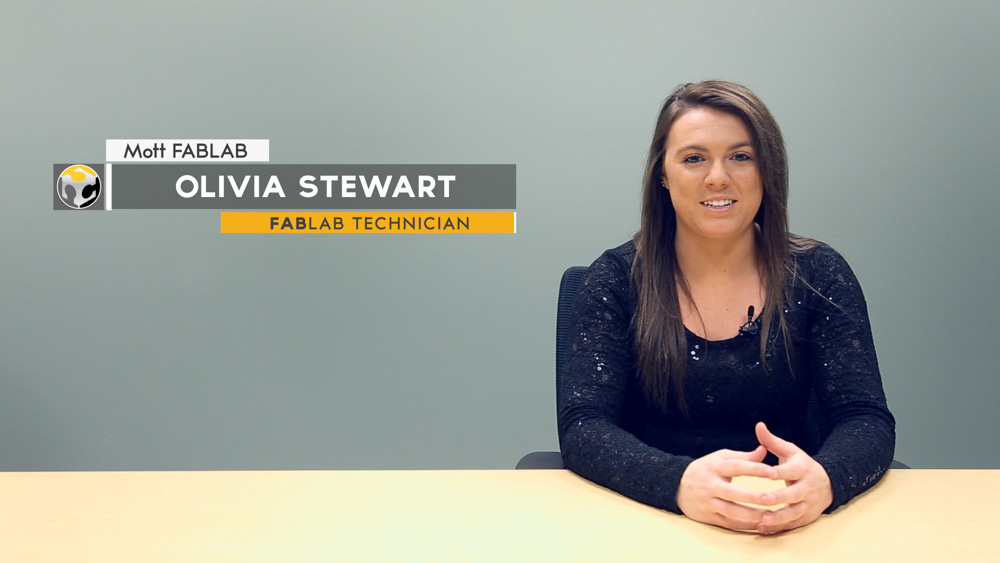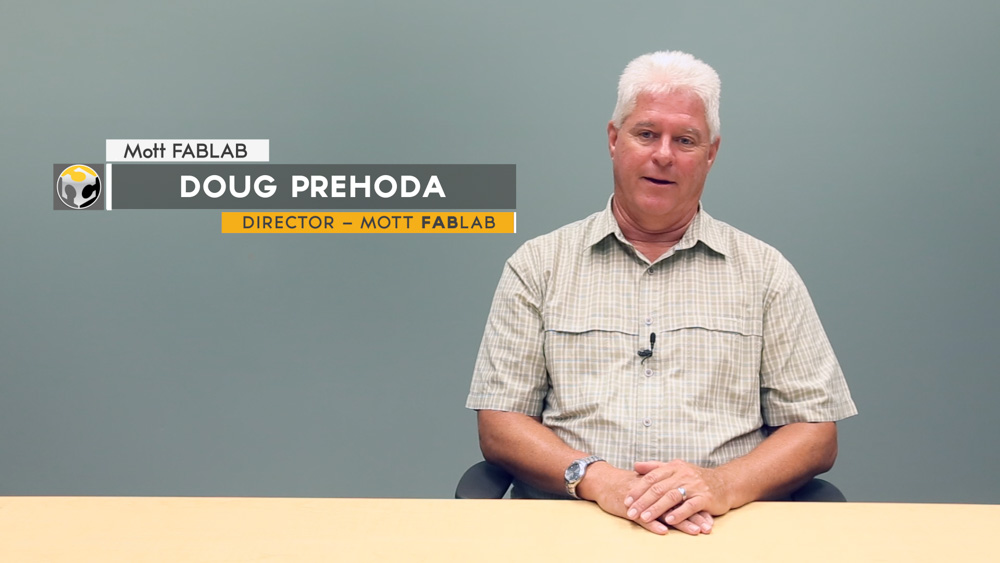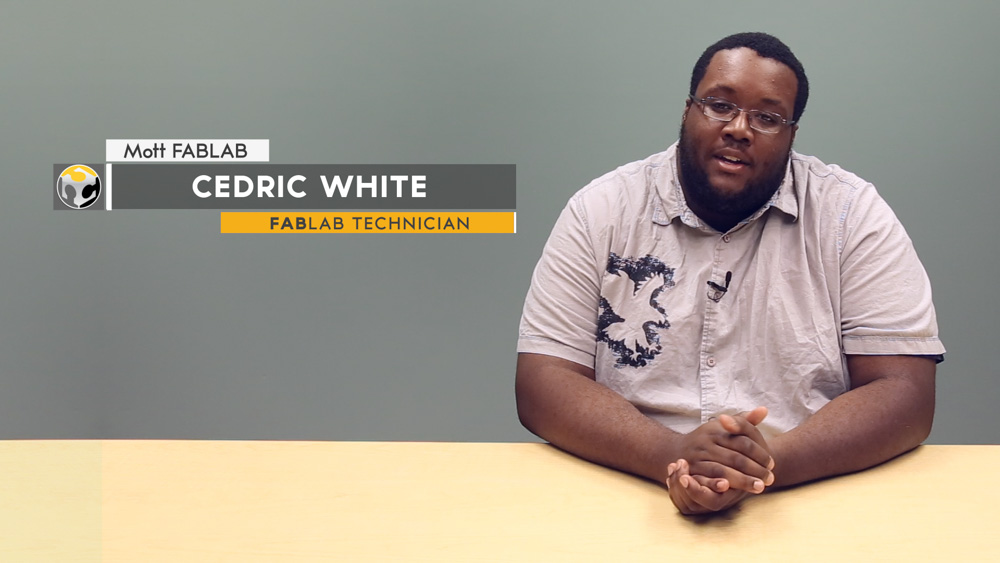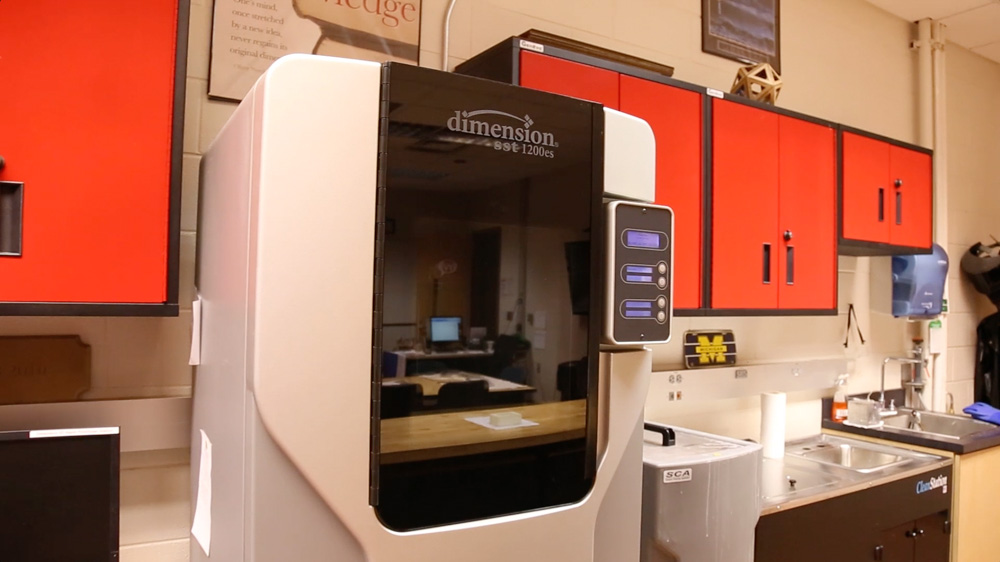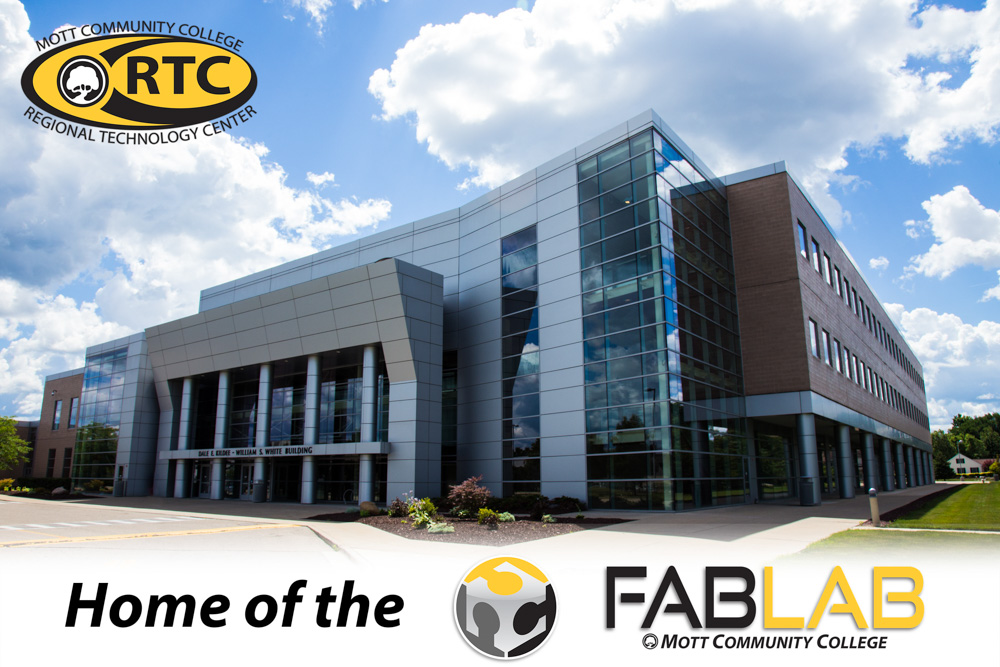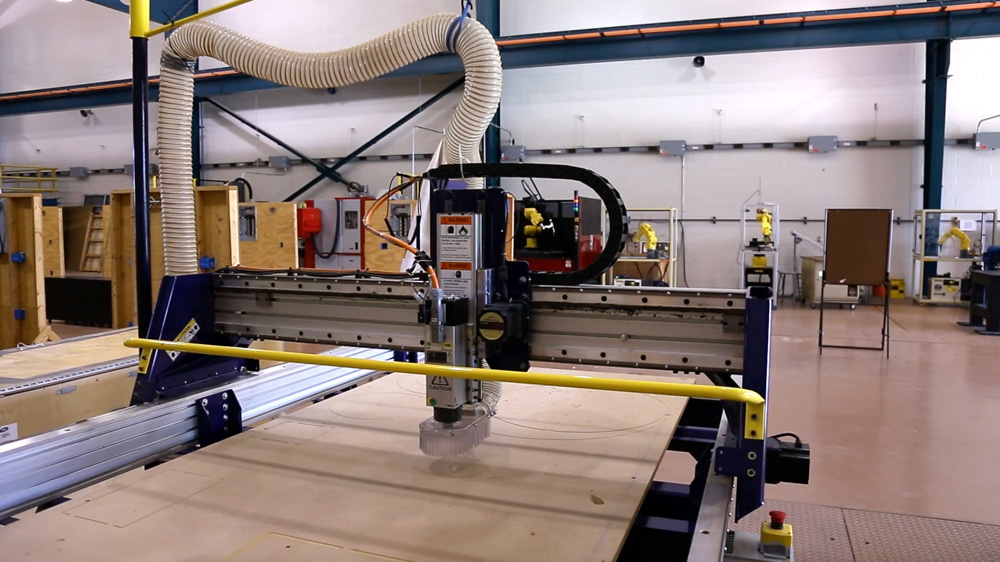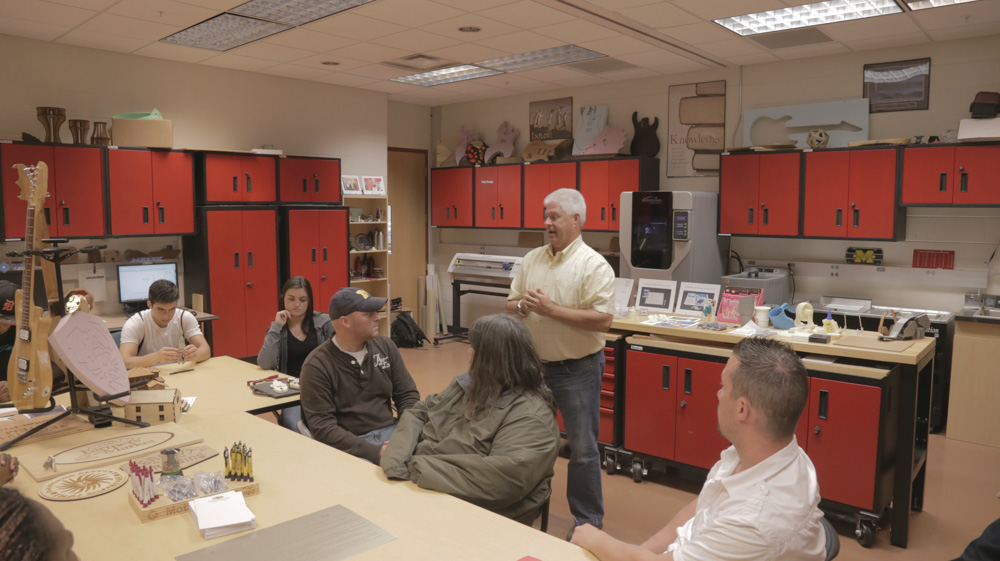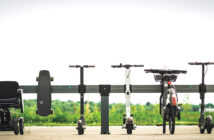In the Regional Technology Center on the Mott Community College campus, the “FabLab” (Digital Fabrication Laboratory) is a place where students, community members, and business owners can use digital tools to turn their inventive ideas into tangible products. The college sees the lab as a way to support creativity and provide access to sophisticated equipment at a reasonable cost.
The FabLab initiative started in 2001 by MIT professor, Dr. Neil Gershenfeld, as a place where people could access digital fabrication tools to create their own products. The Mott FabLab embraces the MIT model and serves as a place for individuals and companies to “turn ideas into prototypes and prototypes into products,” says Thomas Crampton, Executive Dean of Regional Technology Initiatives.
MCC learned about the FabLab as part of a National Science Foundation grant and studied the feasibility of creating one in Flint to support entrepreneurs, business and industry involved in product development. From the beginning, the plan was to integrate the lab into larger efforts underway in the community to support entrepreneurs starting new businesses and existing businesses looking to accelerate growth. In early planning, MCC collaborated with the Entrepreneurship Team (E-Team) managed by the Flint & Genesee Chamber of Commerce and confirmed that product development and prototyping capabilities were absent in the current suite of available services. After determining that they weren’t duplicating existing services, the decision to create the FabLab moved forward.
Doug Prehoda, the Director of the FabLab, started planning in late 2009, and it took about nine months to determine how it could work at MCC. The lab officially opened in January of 2011, having taken about a year to remodel the space and secure equipment.
“The original goal of the lab has always been prototyping,” says Crampton. “We wanted the community, students and small-to-medium-sized business to have access to it.” It isn’t a manufacturing space, but rather one focused on developing working models of product ideas. As a result, the FabLab brings assets to the community that didn’t previously exist. For example, before the lab opened, “local residents and businesses had to outsource 3-D printing to Colorado or California, but now we’re right in their backyard,” adds Prehoda.
Along with Prehoda, advanced students work in the lab as technicians who can help create CAD models and prototypes for clients who come in. Students are able to gain experience in their fields, as well as other important life skills. “I like working with people on the outside, and I get to work on things in my field and get real-life experience,” says Olivia Stewart, a lab tech and Computer Aided Design (CAD) student who will graduate this year.
“I like to see projects and different ideas start out from basically nothing, and see them built, then see the entrepreneurs take their product to market or manufacturing,” adds Cedric White, another lab tech and CAD student who graduated from MCC and will attend Ferris State University in the fall. According to Prehoda, most lab techs have gotten jobs very soon after graduating. Working with clients, communication, time management and deadlines prepare them for their future careers. “They’re very good with it,” Prehoda shares. “It’s a nice stepping stone.”
The FabLab recognizes that prototyping and product development are its core competencies and relies on partners to lead efforts in business planning, market research, marketing and other skills. They will help clients see if competing products exist in the marketplace and, if similar products are found, ask the client some probing questions to see if they think their idea is better, cheaper, or novel enough to make an impression.
Some people come in just to use the lab as a resource for plans that they already have. They access CAD modeling to create 3-dimensional models complete with math data, or laser technology for cutting/engraving on various materials, a vinyl cutter, a plasma cutter, 3-D printers, and a CNC router that can perform precise, large format, cutting, drilling, machining and shaping on products up to 4 feet by 8 feet. The newest piece of equipment is a vacuum assist thermo-former for producing plastic parts.
Currently, the FabLab is trying to reach out to more businesses to let them know they are interested in helping in any way they can. The open-door policy to the community, combined with small service fees offer a good deal compared to the outsourcing Prehoda previously mentioned. “People can come in with an idea, learn how to use the software and equipment, and help as much as they can throughout the process,” Crampton says. These clients work with the student lab techs to stay engaged in the development process and insure necessary changes are made along the way. Or, if they prefer, the lab can do the majority of the work for them and they simply review and approve all of the design elements.
Since opening in 2011, 107 entrepreneurs have come to the FabLab with 132 different product ideas. However, Prehoda estimates that only a handful of those products have made it to the final step – the market. In addition to these entrepreneurs, MCC works with established businesses, non-profit organizations, and also offers summer camps and credit courses. The FabLab reinforces the national agenda on STEM (Science, Technology, Engineering and Math) and has provided tours to several thousand individuals and K-12 students to talk about the advanced technology used in today’s product development and manufacturing industry.
In addition to core services provided on site at the lab, the team also makes referrals to professional design and engineering services for projects with advanced requirements, and makes introductions to companies that can help entrepreneurs with start-up manufacturing services.
Photos provided by DnA Design Co., LLC

